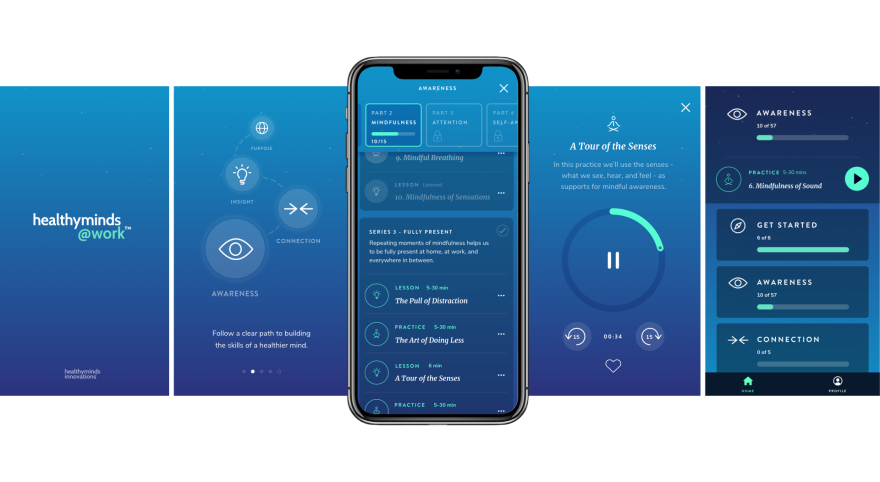Local medical experts say they're worried about the mental health of people in the Milwaukee area after dealing with months of COVID-19 and economic challenges related to the pandemic.
Counselors are recommending various ways to positively cope with additional stress. Some Wisconsin researchers have even developed a free app, designed to help through meditation.
One of the latest warnings about mental health comes from Dr. Ben Weston, director of medical services for the Milwaukee County Office of Emergency Management. Weston says along with more than 21,000 COVID-19 cases and nearly 400 deaths in the county, comes a toll on mental well-being.
"We've seen a substantial rise in the incidents of mental health-related emergencies in our county during COVID-19. At times more than doubling of the numbers of mental health, overdose, and suicide-attempt related calls for EMS calls within the county,” Weston recently told the news media.
He says the symptoms of impaired mental health include extended depression, loss of energy, appetite and sleep, thoughts of hopelessness and substance abuse. Martina Gollin-Graves is president and CEO of the advocacy group Mental Health America of Wisconsin. She says there's an online way to check how you're doing.
"If you're still unsure, you can take an online screening at mhawisconsin.org to learn a little bit more about your symptoms and next steps for connecting with a local mental health provider,” Gollin-Graves said.
"Essentially, you can think of meditation to train the mind in the same way physical exercise trains the body." - Cortland Dahl
While in-person counseling is available in southeastern Wisconsin, including for the uninsured, there are also recently-developed online tools for people to de-stress on their own. One example is an app created by UW-Madison's Center for Healthy Minds and its nonprofit arm Healthy Minds Innovations.
Research Scientist and Chief Contemplative Officer Cortland Dahl says the app helps with meditation. Dahl says he first wants to clear up misconceptions about meditation.

"Some people think it's inherently religious or a Buddhist thing. In fact, you find meditation in virtually all the world's spiritual and religious traditions. You find it in modern scientific and psychotherapeutic interventions. So, it's a pretty universal practice. Essentially, you can think of meditation to train the mind in the same way physical exercise trains the body," Dahl told WUWM.
Dahl says the free, downloadable app can be used for just minutes a day — while you're sitting or being active, like when taking a walk. He describes a section of the app called The Art of Doing Less:
"Part of this really speaks to what we see happening in the modern world. Generally, and even more so over the last decade, where a lot of us are feeling like the moment we wake up in the morning until we fall asleep at night, our lives are filled with endless doing, and what we've really lost is our cultural rituals around being. We have very little space in our lives to simply let go and be," Dahl said.

Dahl says research has shown it's vital to have time and space in our lives. He acknowledges some debate in the scientific literature as to whether meditation can be harmful, but he says the Center for Healthy Minds has just published a study showing no additional risk when compared with doing nothing. He just cautions that people with severe mental illness only start meditating in consultation with their health care provider. Dahl also says some people may simply not be interested in meditation.
The trauma and resilience program manager for the Wisconsin Department of Health Services says coping with stress is not a one size fits all. But Robin Mathias says meditation can help some people.
"It does help folks to center themselves, and if people are practicing that regularly, it help keeps you level. It mitigates anxiety,” Mathias recently told news reporters.
Mathias says people looking for a variety of ways to deal with trauma and toxic stress can find advice on the state's Resilient Wisconsin web page.
Support for Innovation reporting is provided by Dr. Lawrence and Mrs. Hannah Goodman.

Do you have a question about innovation in Wisconsin that you'd like WUWM's Chuck Quirmbach to explore? Submit it below.
_


